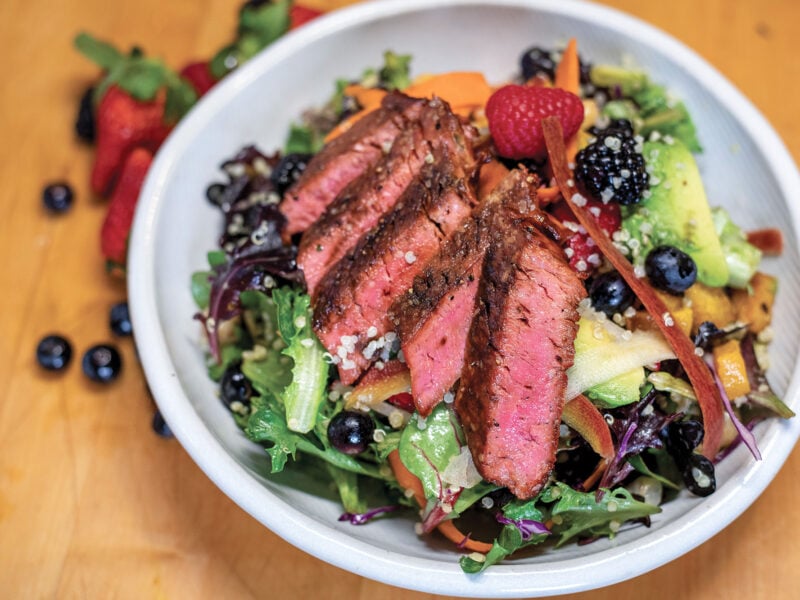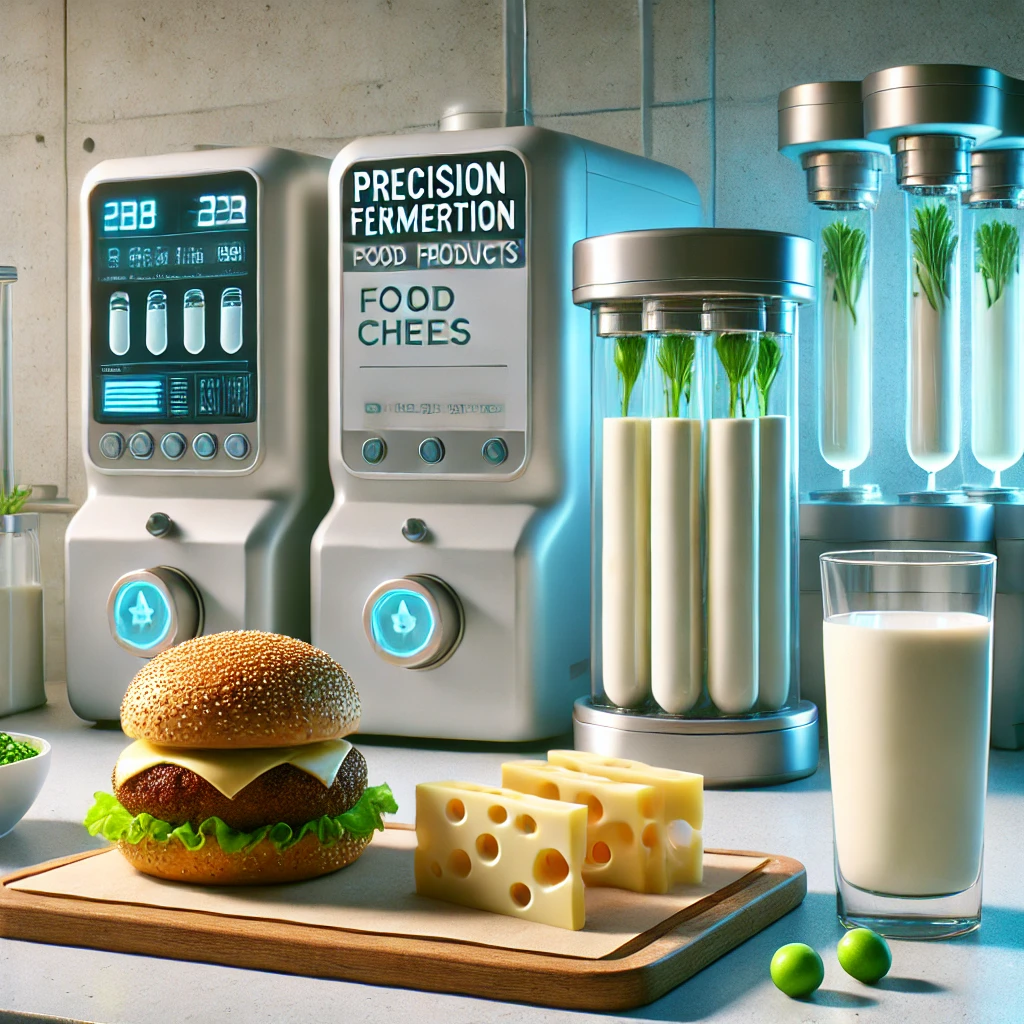WHAT IT IS?
In the world of food innovation, precision fermentation is emerging as a game-changer for creating vegan, cruelty-free, and sustainable food that tastes just like what we’re used to, if not better. Imagine your favorite cheese, milk, or meat products, but made without any animals involved. That’s the magic of this groundbreaking process!

What is ,then, precision fermentation? In simple terms, precision fermentation involves using microorganisms (like yeast or bacteria) to produce specific proteins that mimic those found in animal products. It’s like brewing beer, but instead of alcohol, we get proteins for dairy, eggs, or even meat. These proteins are then used to create delicious, plant-based alternatives that offer the same taste and texture as animal-derived food.

Despite its promise, precision fermentation has faced some criticism. Detractors argue that the technology is still costly, making products less accessible to the average consumer. There’s also concern over its reliance on genetically modified organisms (GMOs), which raises ethical and environmental debates. Additionally, scaling production to meet global food demand without unintended ecological impacts remains a challenge. While it’s a promising solution, the long-term sustainability and affordability of precision fermentation are still under scrutiny
WHY IT´S COOL?
- Cruelty-Free: No animals are harmed in the making of these foods. Goodbye factory farming, hello compassion!
- Sustainable: Precision fermentation uses fewer resources like land, water, and energy compared to traditional animal agriculture. This means a much smaller carbon footprint and less environmental damage.
- Vegan-Friendly: Since no animals are involved, precision fermentation produces 100% plant-based, vegan products that anyone can enjoy.
- Tastes Just Like the Real Thing: Thanks to the precision of this technology, these foods replicate the taste, texture, and nutritional profile of traditional animal products.
WHY IT HAS FUTURE GROWTH POTENTIAL?
As precision fermentation scales up, it could revolutionize the food industry. It offers the potential to make our food systems healthier, more sustainable, and more ethical. In the next few years, you can expect to see more precision-fermented products on supermarket shelves, from dairy-free cheese that melts perfectly to meat alternatives that sizzle like the real thing.
With this technology, the future of food is looking bright, delicious, and planet-friendly. Let’s savor a world where eating sustainably is just as easy and tasty as ever!



Riccardo Giacomo Ferrari
Francesc Miquel Fabregat Galan
I really appreciate how you chose an alternative topic with precision fermentation! It’s refreshing to see discussions around innovative food technologies. You structured everything very well, making the complex concepts easy to understand.
I appreciate that you also addressed the criticisms surrounding precision fermentation, as it’s important to have a balanced view. The concerns about cost and GMOs are valid, and it will be interesting to see how the industry navigates these challenges as it grows.
Vittoria Morace
Aster Baker
Michail Rafail Kanaris
Sigrid Johanna Engel
Hawazen Abdullah O Gashlan